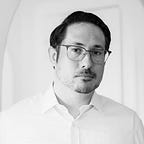Local journalism’s future is rooted in community power
Without truth there is no justice. Without justice there can be no peace.
Fifty years ago, the Watergate conspiracy started to unravel during a routine hearing in a Washington, D.C. courtroom. The reporting that followed is perhaps the most salient illustration of Walter Lippmann’s spin on a hundreds-year-old aphorism: “There can be no higher law in journalism than to tell the truth and shame the devil.” The ensuing cascade demonstrates how newsrooms play a vital role in holding power to account.
Community-based newsrooms, in particular, may be uniquely positioned as agents of social change. People trust local reporting more than other sources of information, research by Gallup and the Knight Foundation shows. And a groundbreaking new study by Nikki Usher and Sanghoon Kim-Leffingwell found that cities with nonprofit accountability newsrooms correlate with an increase in prosecutions of allegedly corrupt public officials.
The impact of Open Vallejos’ reporting has exceeded what I thought possible; it has reinforced my belief in the inherent power of truth. In most cases, there is a clear causal link between the reporting and its effects. But sometimes the connection is less obvious, if it even exists.
One area where it is impossible to know whether our reporting played a role is in an alleged reduction in force used by Vallejo police officers. Nevertheless, I recently started counting the days since Vallejo police last shot at or killed someone: since 2000, they did so every four months, on average; it has now been more than two years and counting — more than six months longer than the previous record.
Then, on Sunday, June 19 deputies from the Solano County Sheriff’s Office arrived at a mental health call and shot a man dead. Jason Thompson was reportedly holding a small, flexible hand saw blade which he had previously used to cut himself, when a deputy shot him in the face seconds after arriving on scene. Vallejo police were slow in responding to several 911 calls, according to reports, and the department’s new crisis intervention team was unavailable. Thompson needed help. Instead he died, age 29, on the second Juneteenth recognized by our nation’s government.
As my JSK Fellowship colleague Simon Galperin recently and eloquently observed, accountability means more than exposing problematic public figures, or even uncovering systemic violence, if the conditions that give rise to them continue as before. It is clear just from reading the news that justice is often found far from the inside of a broadsheet, or a courtroom, if it is to be found at all. And at its worst, journalism reproduces and reinforces systems of repression, instead of dismantling them.
During my JSK Community Impact Fellowship at Stanford, I met nine news leaders who are building community-centered models of news generation and distribution, and thus a chance for a more just and equitable future. That future is premised on much more than shaming the unshameable. It is about building community power, in service of liberation and self-determination, and a news ecosystem that has room enough for independence; consent; and robust, uninhibited and wide-open debate.
Along with the mentors, creators and program staff at JSK, my colleagues’ work has inspired an expansion of Open Vallejo’s vision, and a reinvigoration of our efforts around community engagement and information equity. This work will start with the Vallejo People’s Archive, but it won’t end there. We are exploring data projects, including a recent partnership with the Brown Institute’s Local News Lab, which will explore how machine learning can help make our work more efficient and sustainable. And critically, we are studying structures that support participatory and community journalism, so we may build a sustainable space in which Vallejoans can tell the stories of their city.
For as the Indian activist and academic Aruna Roy has said, “The right to know is the right to live.” That is the real principle guiding this work. And while many wrongs cannot be righted, we have a moral obligation to try, together.
